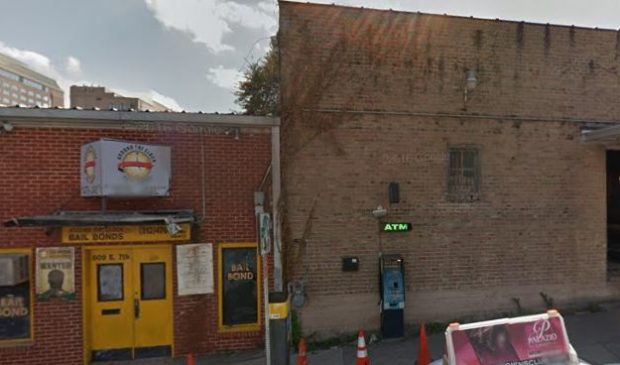Travis County: No place for bondsmen
Thursday, March 30, 2017 by
Jack Craver It’s much better to be arrested in Travis County than most other places in Texas.
Nearly 70 percent of defendants in the Travis County criminal justice system are released on “personal recognizance bonds,” meaning they don’t have to come up with any money, either by digging into their own pocket or getting a loan from a bail bonds service, Irma Guerrero, director of the county’s pre-trial services, told members of the County Commissioners Court on Tuesday.
County Judge Sarah Eckhardt noted that the county’s pre-trial services department was “award-winning” and described its attempts to keep low-level offenders out of jail while awaiting trial as a model of excellence. According to a report by the county, only 11.5 percent of those released on PR bonds fail to appear for a court appearance.
“That shows that your assessment of likely flight risk is very accurate,” she said.
The department, which had a budget of $5.8 million in the most recent fiscal year, consists of more than 80 full-time employees who are tasked with interviewing defendants and determining how likely they are to show up for their scheduled court appearance.
Elsewhere in Texas, things work very differently.
Dallas County has long had strict rules prohibiting pre-trial release for those charged with a wide array of offenses, and the great majority of those who are released are required to put up a monetary bond. And yet, a study found that over a quarter of defendants released on bail there in 2007 failed to appear. In recent years, Dallas County has begun to re-examine its bond practices in hopes of reducing its large jail population.
Meanwhile, Houston’s Harris County is facing a federal lawsuit over its bond practices, which have often resulted in low-level offenders spending significant time in jail because they don’t have the money to bail out. The plaintiff in the suit, Maranda Lynn ODonnell, spent two days in jail after she could not post $2,500 for a charge of driving without a valid license.
The case of Sandra Bland, who was found dead in a Waller County jail after an arrest that was widely denounced as unnecessary and overly aggressive, also put a national spotlight on the issue of bail. The 28-year-old spent her last three days behind bars because she could not come up with the $500 needed to make bail.
“The Sandra Bland story would not happen here,” said Kimberly Pierce, the interim executive of the county Justice and Public Safety division. “I would hope not.”
Larry Sauer, an Austin criminal defense attorney, said his clients in Williamson County rarely get out of jail on PR bonds and in the rare instances that they do, it’s often after spending up to a week in jail. In Travis, he said, those who receive PR bonds “usually get out in a day or two.”
“A lot of people lose their jobs if they’re in jail,” he said. “It’s basically people getting punished for not having the money to hire a bondsman.”
In an ostensible rebuke to recent allegations that Sheriff Sally Hernandez’s sanctuary policy is putting the community at risk by allowing undocumented immigrants charged with crimes to bond out of jail, Eckhardt said that the county had “an excellent track record” of assessing the threat a defendant poses to the community as well as the likelihood that the person will appear in court.
“If threat of re-arrest for the underlying offense is enough, they can get a personal bond,” she said. “If they need a little more inducement to show up, they can get a surety bond, where they have to put money down and if they fail to appear, the money is forfeited. Anybody who fails to appear has a monetary hit to them because they get an additional offense.”
The Austin Monitor’s work is made possible by donations from the community. Though our reporting covers donors from time to time, we are careful to keep business and editorial efforts separate while maintaining transparency. A complete list of donors is available here, and our code of ethics is explained here.
You're a community leader
And we’re honored you look to us for serious, in-depth news. You know a strong community needs local and dedicated watchdog reporting. We’re here for you and that won’t change. Now will you take the powerful next step and support our nonprofit news organization?






